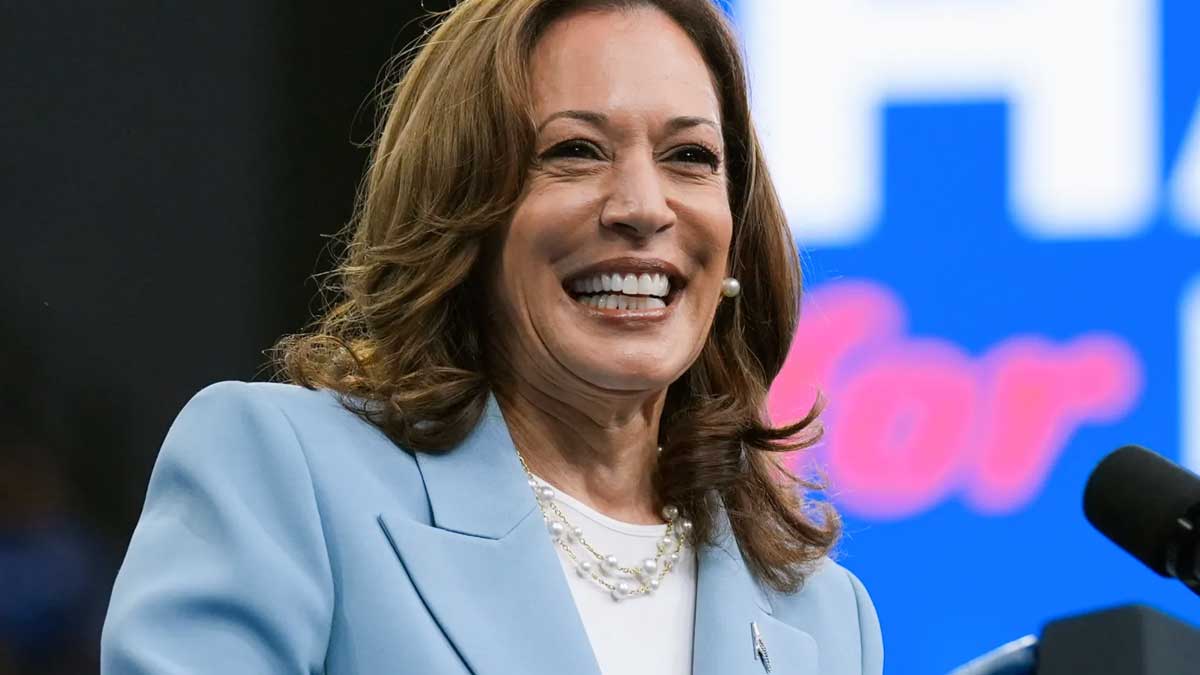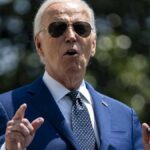- Home
- Billionaires
- Investing Newsletters
- 193CC 1000
- Article Layout 2
- Article Layout 3
- Article Layout 4
- Article Layout 5
- Article Layout 6
- Article Layout 7
- Article Layout 8
- Article Layout 9
- Article Layout 10
- Article Layout 11
- Article Layout 12
- Article Layout 13
- Article Layout 14
- Article Sidebar
- Post Format
- pages
- Archive Layouts
- Post Gallery
- Post Video Background
- Post Review
- Sponsored Post
- Leadership
- Business
- Money
- Small Business
- Innovation
- Shop
Recent Posts
Over 100 VCs, Including Billionaires, Endorse Kamala Harris

In a significant show of support, over 100 venture capitalists declared their backing for Vice President Kamala Harris on Wednesday, presenting a counter-narrative to a vocal faction of tech executives aligned with former President Donald Trump. This collective endorsement highlights a growing divide within Silicon Valley, where perceptions of the industry’s political leanings are increasingly contested.
The initiative, spearheaded by VCsForKamala.org, a platform directing supporters to Harris’ donation page, features a roster of high-profile venture capitalists and billionaires. Among the prominent names backing Harris are LinkedIn co-founder Reid Hoffman, with an estimated net worth of $2.5 billion; Dallas Mavericks owner and entrepreneur Mark Cuban, valued at $5.4 billion; Vinod Khosla of Khosla Ventures, whose fortune stands at $7.5 billion; and Lowercase Capital’s Chris Sacca, worth $1.2 billion. Their participation adds to the growing list of billionaires who have already pledged support to Harris, including Melinda French Gates, Sheryl Sandberg, Reed Hastings, George Soros, and Barry Diller.
This substantial backing for Harris comes against a backdrop of increasing support for Trump from other influential figures in Silicon Valley. Notable tech leaders, including Tesla CEO Elon Musk and venture capitalist David Sacks, have publicly supported Trump, which has sparked debate about the prevailing political climate in the tech industry. This shift has prompted anti-Trump voices within the tech community to rally in opposition to the notion that Silicon Valley is moving toward a rightward tilt.
Leslie Feinzaig, founder of the venture capital firm Graham & Walker and an organizer of VCsForKamala, expressed her frustration with the narrative of Silicon Valley’s political shift. “They don’t speak for me… they don’t speak for most of us,” Feinzaig told the New York Times. She explained that the persistent support for Trump from some tech executives motivated her and others to affirm their support for Harris. Feinzaig’s comments reflect a broader sentiment among those who believe that Trump’s endorsement does not represent the majority viewpoint in the tech community.
Harris’ entry into the presidential race has injected a renewed sense of energy into the Democratic Party. The campaign has seen a surge in both large and small-dollar donations, demonstrating a broad base of support for Harris. Within the first week of her candidacy, Harris raised an impressive $200 million, according to her campaign. Additionally, the super PAC Future Forward reported receiving $150 million in commitments within 24 hours after President Joe Biden’s withdrawal from the race. This financial boost underscores the growing enthusiasm for Harris’ campaign and the increasing consolidation of support among major Democratic donors.
Before Biden suspended his campaign on July 21, and following his June 27 debate with Trump, Future Forward donors had temporarily frozen $90 million in commitments. This decision came amid calls from several wealthy donors, including billionaire Mark Pincus, Christy Walton, Michael Novogratz, and Reed Hastings, urging Biden to step aside. The shift in support from these prominent figures reflects the dynamic nature of the Democratic primary and the strategic recalibrations within the party.
In contrast, the pro-Trump faction within Silicon Valley remains active and influential. Prominent venture capitalists Marc Andreessen and Ben Horowitz have announced their intentions to contribute to pro-Trump PACs. They join a list of tech billionaires who have already supported Trump’s campaign, including Palantir co-founder Joe Lonsdale, crypto entrepreneurs Cameron and Tyler Winklevoss, and venture capitalists Antonio Gracias and Douglas Leone. Sacks notably hosted a $12 million fundraiser for Trump at his San Francisco residence in June, further highlighting the ongoing support for the former president within certain circles of Silicon Valley. Musk has also publicly endorsed Trump, although he has denied reports suggesting he would contribute $45 million monthly to a pro-Trump super PAC.
The contrasting political alignments among Silicon Valley’s elite underscore the broader debate about the tech industry’s political landscape. As the 2024 presidential race heats up, the division between Trump supporters and Harris backers within the tech community reflects a microcosm of the larger national political discourse. The substantial backing for Harris from a diverse group of venture capitalists and billionaires highlights the ongoing battle for influence and the shaping of public perception in a pivotal election year.
As the campaign progresses, the influence of these tech leaders and their financial contributions will likely play a significant role in shaping the political landscape and the broader narrative surrounding Silicon Valley’s political orientation.
Recent Posts
Categories
- 193cc Digital Assets2
- 5G1
- Aerospace & Defense46
- AI37
- Arts3
- Banking & Insurance11
- Big Data3
- Billionaires494
- Boats & Planes1
- Business329
- Careers13
- Cars & Bikes76
- CEO Network1
- CFO Network17
- CHRO Network1
- CIO Network1
- Cloud10
- CMO Network18
- Commercial Real Estate7
- Consultant1
- Consumer Tech182
- CxO1
- Cybersecurity68
- Dining1
- Diversity, Equity & Inclusion4
- Education7
- Energy8
- Enterprise Tech29
- Events11
- Fintech1
- Food & Drink2
- Franchises1
- Freelance1
- Future Of Work2
- Games142
- GIG1
- Healthcare78
- Hollywood & Entertainment188
- Houses1
- Innovation42
- Investing2
- Investing Newsletters4
- Leadership65
- Lifestyle11
- Manufacturing1
- Markets20
- Media194
- Mobile phone1
- Money13
- Personal Finance2
- Policy567
- Real Estate1
- Research6
- Retail1
- Retirement1
- Small Business1
- SportsMoney34
- Style & Beauty1
- Success Income1
- Taxes2
- Travel10
- Uncategorized8
- Vices1
- Watches & Jewelry2
- world's billionaires463
Related Articles
Trump Moves $4B Stake in Truth Social Parent, Stock Drops 6%
Donald Trump recently transferred his 57% stake in Trump Media & Technology...
By 193cc Agency CouncilDecember 20, 2024House Rejects Trump-Backed Funding Bill, Shutdown Looms
The U.S. House of Representatives rejected a new government funding bill on...
By 193cc Agency CouncilDecember 20, 2024Trump Named Time’s Person of the Year for Second Time
On Thursday, Time magazine honored Donald Trump as its “Person of the...
By 193cc Agency CouncilDecember 12, 2024Meta Donates $1 Million to Trump’s Inaugural Fund
Meta, the parent company of Facebook and Instagram, has confirmed a $1...
By 193cc Agency CouncilDecember 12, 2024















Leave a comment